Picking Your perfect chicken
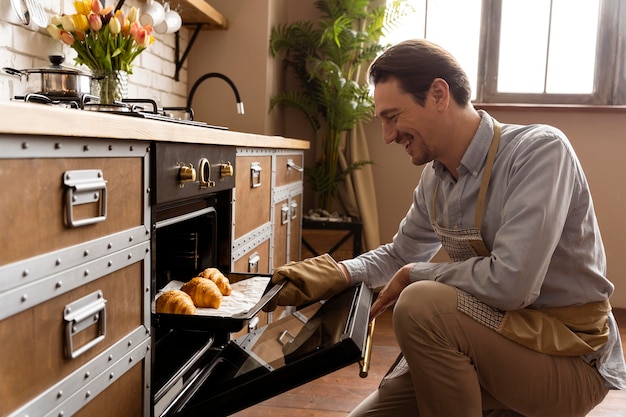
When it comes to weight, a 1.5kg chicken is perfect for a family of four. But if you're having a larger gathering, you'll want to go bigger. And remember, if you want wings, legs, or breasts, ask for them separately. Your butcher will be happy to help.
What To Look For In a Good Chicken
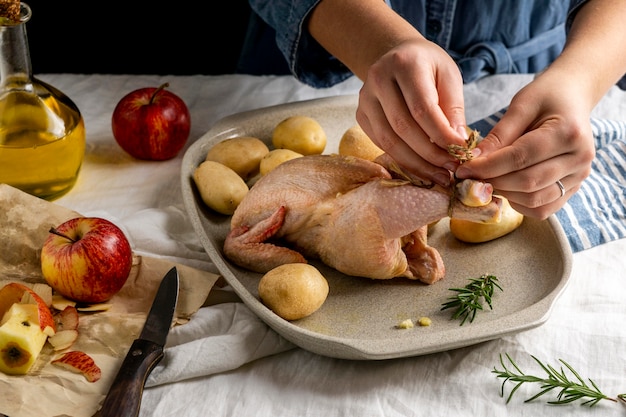
Before you grab your chosen bird, take a moment to check for a few key things:
- Skin: Look for a smooth, taut skin, free from any tears or blemishes. This means the chicken is fresh and hasn't been mishandled.
- Smell: A fresh chicken should have a pleasant, slightly sweet smell. If it smells sour or ammoniacal, it's a sign that it's not fresh. Don't even think about using it!
- Fat: A good chicken will have a layer of fat under the skin. This fat is crucial for keeping the meat moist and tender during cooking. It's a good sign that your chicken has been raised well.
- Color: The chicken should be a pale, pinkish colour. A yellow or greenish tinge suggests it's a bit too old. We want a fresh, vibrant bird.
Once you have your chosen bird, give it a good rinse inside and out. Then, pat it dry with kitchen paper to remove any excess moisture. Now, you're ready to start getting your chicken ready for roasting.
(Part 2) Preparing for Roast Chicken PerfectionThe Secret to crispy skin
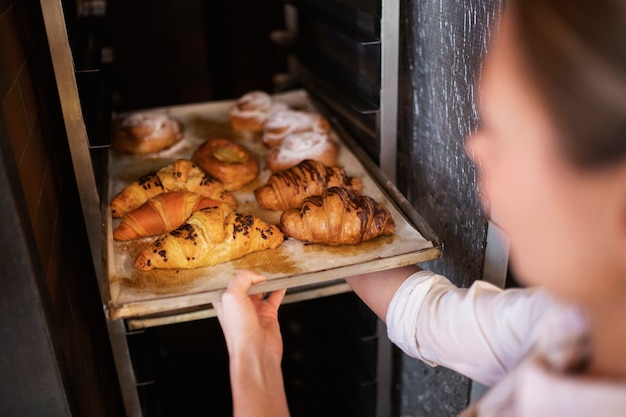
Now, we're going to focus on achieving that perfect, crispy skin. It's the key to a truly great roast chicken. One of the best ways to get that crispy skin is to leave the chicken uncovered in the fridge overnight. Yes, overnight! This will allow the skin to dry out and tighten, creating that perfect canvas for crisping in the oven.
If you don't have the luxury of overnight drying, don't worry. You can still achieve amazing results with a little extra effort. Pat the chicken dry with kitchen paper, then rub it all over with a generous amount of salt. This will draw out moisture and help the skin to become crispy.
Seasoning for Flavor
This is where you get to be creative. For a simple and classic roast chicken, a good sprinkle of salt and pepper is all you need. But if you're feeling adventurous, there are a whole world of flavours waiting to be explored. Herbs like rosemary and thyme, garlic, paprika, or even a pinch of chilli flakes can add amazing depth to your roast chicken.
I love to stuff the cavity with a lemon cut in half and a few sprigs of rosemary. The lemon adds a bright, citrusy aroma, and the rosemary infuses the chicken with a subtle woody flavour. You can also add a few slices of onion for extra sweetness.
Getting Your Oven Ready
Now, we need to make sure the oven is nice and hot. A good roasting temperature is 180°C (350°F). This heat will cook the chicken evenly and give it that gorgeous golden-brown colour we all crave. I recommend preheating the oven for at least 15 minutes before you put the chicken in. This ensures that the oven is at the perfect temperature from the moment the chicken goes in.
(Part 3) Roasting the ChickenThe Roasting Process
Now, it’s time to get your chicken in the oven. If you're using a roasting rack, place it on top of a baking sheet to catch any drippings. This will prevent the chicken from sticking to the bottom of the pan and will help to cook it more evenly. You want to ensure all sides of the chicken get the same heat.
A good rule of thumb for roasting time is 20 minutes per pound, plus an extra 15 minutes. So, a 1.5kg chicken will need about 1 hour and 45 minutes in the oven. But remember, every oven is different. So, it's crucial to check the internal temperature of the chicken to make sure it's cooked through.
Monitoring for Doneness
While the chicken is roasting, keep a close eye on it. A meat thermometer is your best friend. You want the thickest part of the thigh to reach an internal temperature of 74°C (165°F). Don't worry about overcooking the breast. It will cook through before the thigh, and overcooking will result in a dry breast. We want succulent, juicy meat throughout!
About halfway through the cooking time, baste the chicken with the drippings in the pan. This will help keep the skin moist and tender, contributing to a more delicious end result.
(Part 4) Resting the ChickenLet It Rest, It Deserves It!
Once the chicken is cooked through, take it out of the oven and let it rest for about 10 minutes before carving. This might seem like an unnecessary step, but it's essential. Resting allows the juices to redistribute throughout the meat, creating a more tender and juicy chicken. Cover it with a piece of foil to keep it warm while it rests.
(Part 5) Carving the ChickenThe Art of Carving a Chicken
This might seem intimidating, but it's really not that hard. Grab a sharp carving knife and start by removing the legs and thighs. Then, carefully cut the breast away from the bones. You can then carve the breast into slices. Don't forget to save those lovely, juicy drippings! They're the key to making a delicious gravy.
(Part 6) Serving and EnjoyingServing Your Roast Chicken
The chicken is cooked, rested, and carved, now it's time to serve it up! The possibilities are endless. You can serve it with traditional roast vegetables, fluffy mashed potatoes, crispy Yorkshire pudding, and a rich, homemade gravy. For a lighter meal, a simple salad and some crusty bread work wonderfully.
Adding Those Special Touches
If you want to take your roast chicken to the next level, try these extra touches:
- Garlic Butter: Rub the chicken with garlic butter before roasting for a rich and flavourful experience. Add some fresh herbs like rosemary or thyme to the butter for an extra burst of flavour.
- Lemon and Herbs: Stuff the cavity with lemon slices and fresh herbs like rosemary or thyme. The citrus and herb combination creates a beautiful aroma and adds a touch of freshness.
- Pancetta or Bacon: Wrap the chicken in pancetta or bacon before roasting for a crispy and salty flavour. Just be sure to remove any excess fat before serving.
The Magic of Leftovers
You've got a delicious roast chicken, but what about those leftovers? Don't let them go to waste! There are so many ways to transform them into new, exciting dishes. Here are a few ideas:
- chicken salad: Mix the chicken with mayonnaise, celery, onion, and your favourite herbs for a delicious salad. Add some crunchy nuts or seeds for texture.
- Chicken Soup: Use the leftover chicken to make a hearty and comforting soup. Add some vegetables, noodles, and your favourite spices. You can even use the leftover bones to make a delicious stock.
- Chicken Sandwiches: Slice the chicken and put it between two slices of bread with some lettuce, tomato, and your favourite sauce. A drizzle of mayonnaise or a spicy mustard sauce is always a good idea.
- chicken tacos: Shred the chicken and use it to make delicious tacos. Add some salsa, guacamole, and your favourite toppings. A sprinkle of cheese or a squeeze of lime juice is always a nice touch.
Frequently Asked Questions
How long should I roast a chicken for?
A good rule of thumb is to roast a chicken for 20 minutes per pound, plus an extra 15 minutes. So, a 1.5kg chicken will need about 1 hour and 45 minutes in the oven. But every oven is different, so it's crucial to check the internal temperature to make sure it's cooked through.
What temperature should my oven be?
A good roasting temperature is 180°C (350°F). This will cook the chicken evenly and give it that gorgeous golden-brown colour.
How do I know when my chicken is cooked?
Use a meat thermometer to check the internal temperature of the chicken. The thickest part of the thigh should reach an internal temperature of 74°C (165°F). If the juices run clear when you pierce the thickest part of the thigh, the chicken is cooked.
Can I stuff my chicken?
Yes, you can stuff your chicken with a variety of ingredients. Some popular options include stuffing made with bread, herbs, and vegetables, or a simple lemon and herb stuffing. Make sure to stuff the chicken loosely, as stuffing can trap heat and prevent the chicken from cooking evenly. If you're stuffing your chicken, it will require an extra 15-20 minutes of cooking time.
What are some tips for making crispy chicken skin?
To get crispy skin, try these tips:
- Pat the chicken dry with kitchen paper before roasting.
- Roast the chicken uncovered.
- Baste the chicken with the drippings in the pan halfway through cooking.
- Use a roasting rack to allow air to circulate around the chicken.
There you have it, my guide to the perfect roast chicken. I hope this has inspired you and given you the confidence to tackle this classic dish in your own kitchen. Now, go forth and roast! Happy cooking!
Everyone is watching

How to Cook Frozen Lobster Tails Perfectly: A Step-by-Step Guide
RecipesLobster. Just the word conjures up images of lavish meals, special occasions, and a taste of luxury. But let's...

Pigs in a Blanket Cooking Time: How Long to Bake for Perfect Results
RecipesAh, pigs in a blanket. Just the name conjures up images of those delightful little parcels of crispy pastry en...

Pork Fillet Cooking Time: How Long to Cook It Perfectly
RecipesPork fillet, or tenderloin as it's sometimes called, is a real favourite in our house. It's so versatile, and...
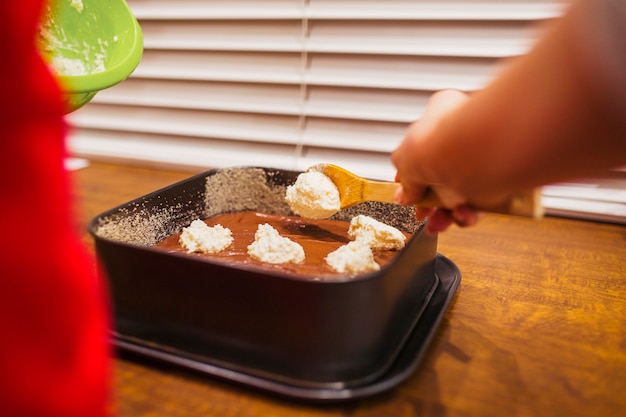
The Ultimate Guide to Cooking Delicious Frankfurters
RecipesLet's face it, we all love a good frankfurter. It's a classic, simple, and always satisfying. But let's be rea...
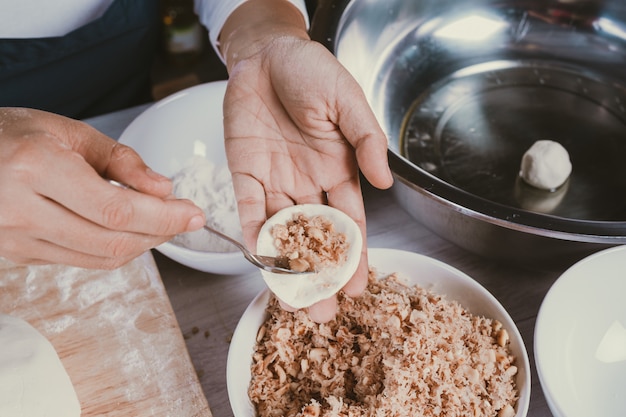
The Ultimate Guide to Tender, Juicy Pulled Pork
RecipesRight, let's talk pulled pork. It's one of those dishes that just screams "comfort food," doesn't it? I mean...
